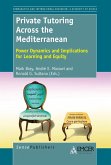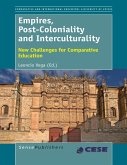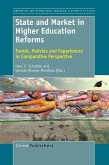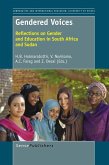This edited volume, based on papers presented at the World Congress of Comparative Education (Istanbul, 2010), presents research examining pre-service teacher education, in-service teacher development, and the politics of teachers' work in a variety of geographical regions, including Asia, Africa, Eurasia, Europe, Latin America, and North America. More specifically, the chapters examine the situations, activities, and education of teachers in the societal contexts of Cuba, Equatorial Guinea, France, Germany, Ghana, Hong Kong, Ireland, Lithuania, The Netherlands, Scotland, Spain, Turkey, and the United States. The authors address a variety of important questions related to a group of employees who are key actors in determining the quality of education: How can pre-service teacher education best be organized for different purposes in various settings? What kinds of activities should be organized and who should be involved in in-service professional development to promote teacher capacity and commitment to perform their roles in classrooms and communities? What kinds of incentives can motivate teachers' engagement with various aspects of their work? How do certain educational policies and reforms promote the professionalization or the deprofessionalization and proletarianization of teaching? What are the opportunities and constraints for teachers as they seek to operate within themicro-politics of schools and the macro-politics of society? The book thus contributes to refining our understanding of the critical theoretical issues in the field of comparative and international education as well as calling attention to dynamics that should be considered in developing and implementing as well as critiquing and resisting educational policies in varying contexts.
Dieser Download kann aus rechtlichen Gründen nur mit Rechnungsadresse in A, B, BG, CY, CZ, D, DK, EW, E, FIN, F, GR, HR, H, IRL, I, LT, L, LR, M, NL, PL, P, R, S, SLO, SK ausgeliefert werden.









